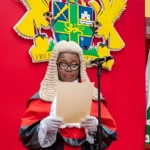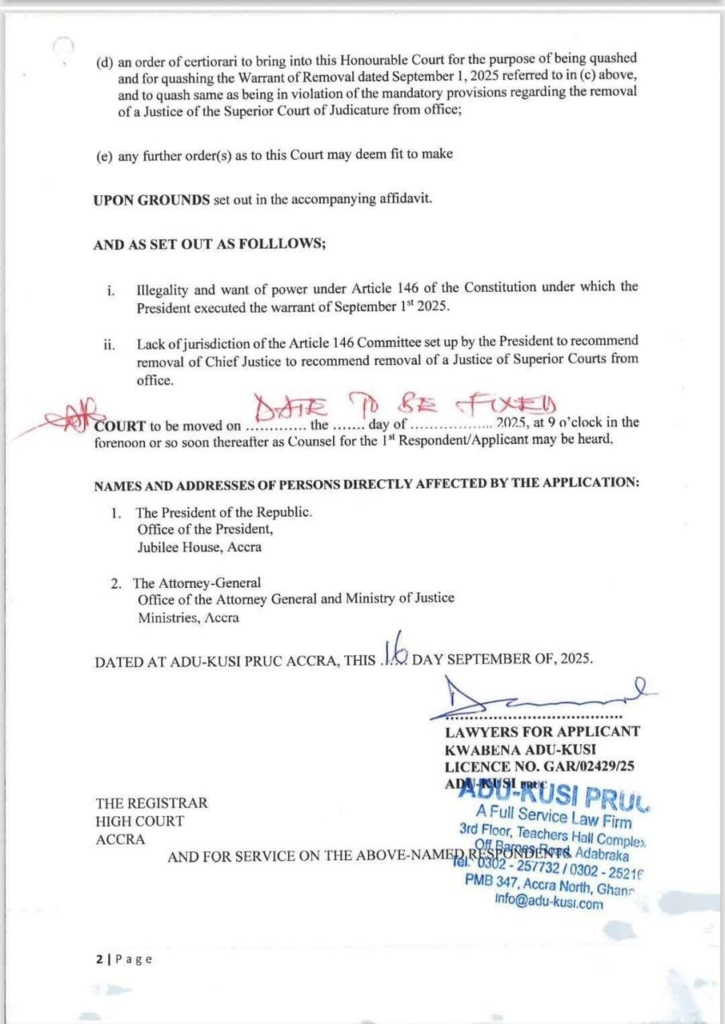
So she is not done. Just when many thought the gavel had spoken, Gertrude Araba Esaaba Sackey Torkornoo has reappeared, not in robes, but in petitions. Abuja one day, Accra the next. ECOWAS for sympathy, the High Court for salvation. The stage has shifted, but the play continues.
The ink is hardly dry on her warrant of removal, yet Gertrude has reappeared in the High Court, not as a judge, but as an applicant. Her prayer? That the President’s hand was too heavy, his warrant too hasty, his power too thin without Article 146 as a cloak. In plain terms, she wants Accra to quash what Accra has written.
What does this mean? That substance is not her shield, only procedure. That a committee which sifted through ten thousand pages and dozens of witnesses may be set aside because a deadline or jurisdiction line was misplaced. Law as loophole, not as truth.
It is finished, they said. But in Ghana, even “finished” has an appeal. The law is the law, but sometimes the law is also the loophole.
Her move is constitutionally permitted. Every citizen has the right to contest executive action in the courts. Yet this spectacle has the air of a theatre. The very Constitution that removed her is now being summoned to rescue her. The tool of removal becomes the instrument of revival.
People will ask: Is this bid for annulment credible, or just another chapter in a drama already judged? It depends on what the court finds. If the High Court digs deep, forcing full exposure of the evidence, the witnesses, the report, then perhaps this suit is a last bastion of constitutional integrity.

But if it collapses on technicality, if it clings to deadlines instead of substance, then it risks confirming what many already whisper: that even our highest judge has chosen the loophole over the law.
The ECOWAS Court may still hand down a word, but sovereignty is not a franchise. Abuja cannot overturn Accra. The gavel remains here. Which is why this High Court filing carries far greater weight. It is Ghana judging Ghana.
The contradiction is glaring. A Chief Justice who presided over delays, selective urgency, and controversial rulings now argues that procedure must prevail above all. A woman who once held the gavel now pleads before it.
“The pestle has been pounded. The landlord is the tenant. The judge is judged.”
So is this justice, or law dressed up as theatre? That is the question. What is certain is this: the Republic itself is now on trial. And whether this ends as credibility or cronyism, loophole or law, will echo long after the court adjourns.
It is finished, they said. Yet not quite. In Ghana, even the word “finished” seems to come with a footnote.
The law is the law.
Kay Codjoe